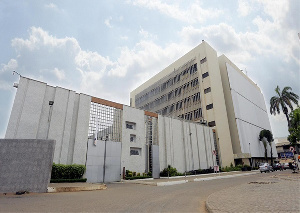IMF evaluating economic implications of Ghana’s Anti-LGBT+ Bill

The International Monetary Fund (IMF) has stated that it is assessing the possible effects of the passage of the anti-LGBT+ Bill on Ghana’s economy.
The Human Sexual Rights and Family Values Bill, also known as the Anti-LGBT+ Bill, which was passed by parliament on February 28, 2024, is awaiting presidential assent to come into force.
The move, however, has drawn criticism from various stakeholders within and outside the country.
According to citinewsroom.com, the Director of the IMF’s Communications Department, Julie Kozak, speaking at a recent press briefing in Washington, DC, reiterated the need for the government to continue implementing the ongoing programme as envisaged, to ensure sustainable growth.
She also said the IMF is assessing the implications of the Anti-LGBT+ Bill, while highlighting the need for diversity in growing economies.
“Looking ahead, steadfast policy and reform implementation will be needed to fully and durably restore macroeconomic stability and debt sustainability in Ghana. It will be crucial for the government to continue implementing the program as envisaged to ensure sustainable growth and policy implementation.
“With respect to the specific piece of legislation, our team is evaluating the potential economic and financial implications of the legislation and we will continue to monitor the situation closely. As we have said before, like institutions, diverse and inclusive economies flourish and finally, on the timeline, we expect that the next mission will tentatively take place in April,” she said.
Background
The Anti-LGBT+ Bill is a proposed law that would impose harsh penalties and restrictions on LGBT+ people and their allies in Ghana.
The bill, which has been passed by parliament and awaits the president’s assent, aims to protect Ghanaian family values and culture from foreign LGBT+ influence.
The bill includes provisions such as imprisonment, bans, reporting, extradition, and immunity for LGBT+ actions.
However, the bill has been criticized by human rights groups, civil society organizations, LGBT+ activists, and some celebrities and diplomats, who say the bill violates the rights and dignity of LGBT+ people and their supporters, and could harm Ghana’s economy, health, education, and foreign relations.
Source: www.ghanaweb.com





